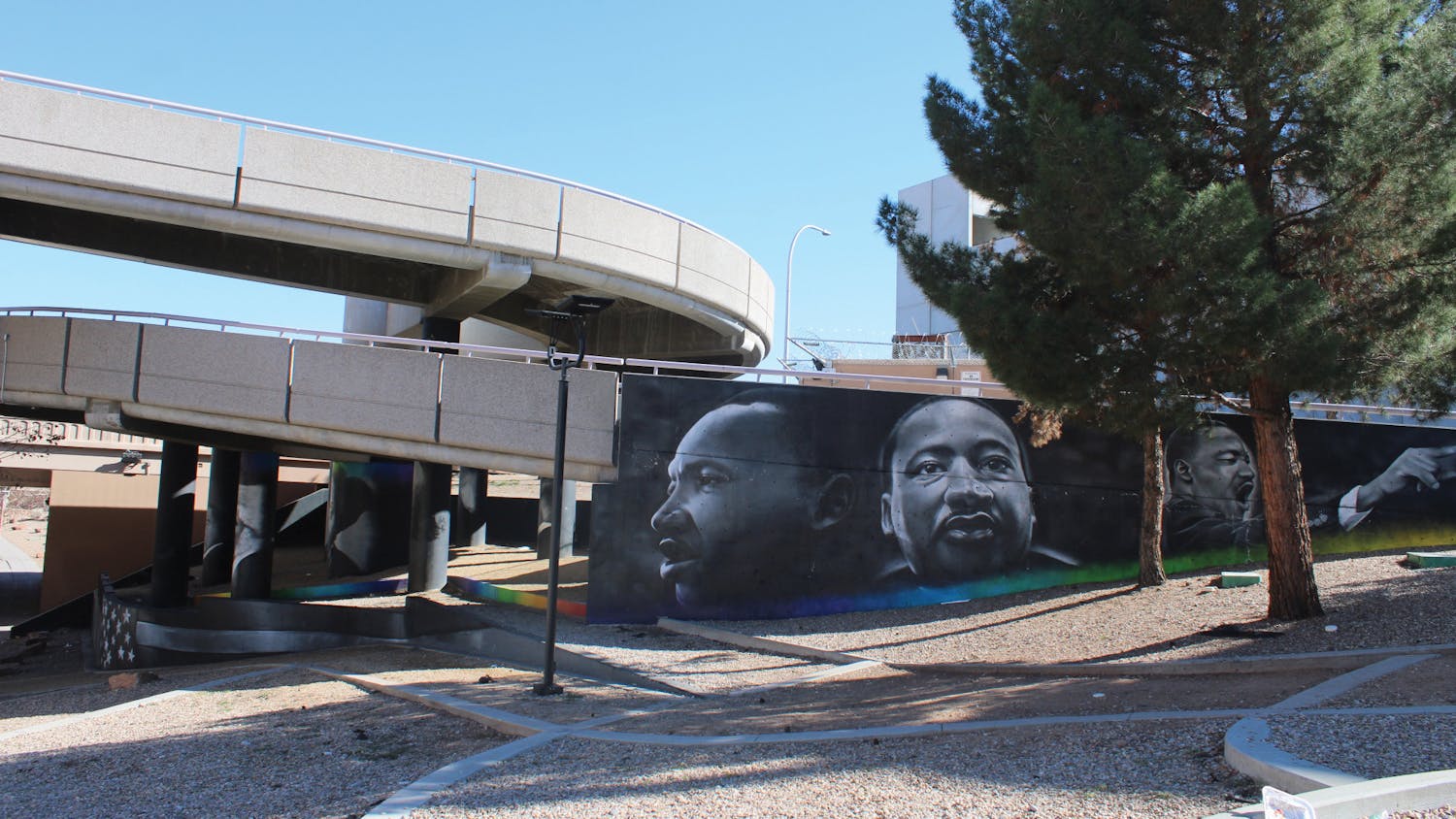The day before Russia invaded Ukraine, Yuliia Kashuba, an international student at the University of New Mexico from Ukraine, gave a presentation to her class about the fighting that had been going on in eastern Ukraine against Russia, explaining that it was not a full-on invasion, not knowing what would happen in the coming day.
“No one deserves to be killed in this way. There's no reason. We used to live independent, we (were), like, pro-European country with our own freedom of speech, freedom of expression. You (could) be wherever you want in Ukraine,” Kashuba said.
Kashuba has luckily been able to maintain contact with her family in Ukraine. She said that she has been paying attention to the propaganda that Russia has been feeding Russians to justify the war, which she said is terrifying. She also described how, in contrast, the messages being spread amongst Ukrainians are ones of unity.
“And now we are all (a) whole unit and this war, it (brought) us together. And doesn't matter what language you speak or in what state you are, where you come from, and we are (supporting) each other … I'm proud of our army, it is doing really good,” Kashuba said.
Kashuba is from a small town in the Ivano-Frankivsk region and has spent time living in Lviv, which she dubbed the heart of culture in Ukraine. She said that people in her hometown have welcomed refugees, including her family who she said have no plans of leaving town.
“You know, we can be robbed (if we leave) and we don't want to leave our place because we live there (our whole) life. We don't want to move anywhere,” Kashuba said, recounting what her grandma told her.
She said that she has always been proud of being Ukranian and, since coming to New Mexico, has wanted to share her distinct Ukranian culture.
“I've never said I'm from Russia because Russia is biggest and everyone knows Russia, I said it's Ukraine. I'm from Ukraine,” Kashuba said.
Their language and culture has been a point of unity during the war. Kashuba said that, earlier in the conflict, part of the Ukrainian strategy for finding spies was to ask them to pronounce palyanitsa, a Ukrainian poppy seed and honey bread, which Russian soldiers could not pronounce the same way, thus making it a clear giveaway.
“And the Russian speakers we like caught those people, because I saw a lot of funny video is like ‘say, palyanitsa’ and he's like ‘palyanitsa’ with the accent and it’s like, you’re not Ukrainian,” Kashuba said.
While she is thankful to be safe and be able to stay in New Mexico as she is transitioning out of the Center for English Language and American Culture to be a traditional UNM student in the organization, information and learning sciences program, it has been hard to not be able to be there with her family helping out.
“I feel myself like useless and those emotion(s) … It was in the beginning that they just bombed infrastructure but when they start to rape women, kill the innocent citizen, start to like really provide this war without rules …. They like people hide in the bunkers, in the shelters. And they dying because no food and just it's a lot of like I can't like and I'm here,” Kashuba said.
Get content from The Daily Lobo delivered to your inbox
Kashuba said that Russian warfare is both psychological and brutal as the Russian militia is breaking rules from the Geneva Conventions in their ruthless attacks on civilians in Ukraine. An article from ReliefWeb, a humanitarian-centric news source run by the United Nations Office of the Coordination of Humanitarian Affairs, cites a Russian bombing of a hospital in Mariupol as a direct violation of the Geneva Conventions.
“And they think … like a chessboard … It's like territory, when always you can conduct war because you can, it's a middle in the middle between … Europe,” Kashuba said.
Being proud of her home and culture, she also misses the food, some of her favorites being syrniki, buckwheat and borscht, the livelihood of cities like Lviv where she lived and her family and friends and went to school. Most of all, though, she misses her family and friends.
“I will hug my family members, of course. I miss them so much. And probably I (will schedule) a meeting with (all) my friends,” Kashuba said. “Everyone. All of them.”
Madeline Pukite is a beat reporter at the Daily Lobo and can be contacted at culture@dailylobo.com, or on Twitter @maddogpukite






